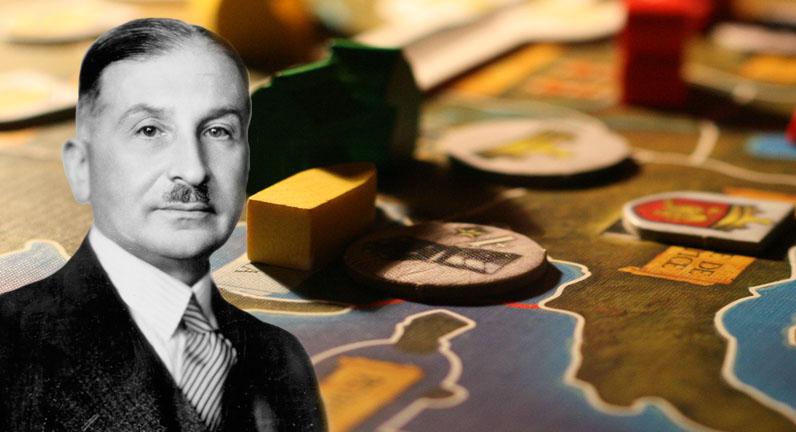
The Right of Self-Determination
It has already been pointed out that a country can enjoy domestic peace only when a democratic constitution provides the guarantee that the adjustment of the government to the will of the citizens can take place without friction. Nothing else is required than the consistent application of the same principle in order to assure international peace as well.
The liberals of an earlier age thought that the peoples of the world were peaceable by nature and that only monarchs desire war in order to increase their power and wealth by the conquest of provinces. They believed, therefore, that to assure lasting peace it was sufficient to replace the rule of dynastic princes by governments dependent on the people. If a democratic republic finds that its existing boundaries, as shaped by the course of history before the transition to liberalism, no longer correspond to the political wishes of the people, they must be peacefully changed to conform to the results of a plebiscite expressing the people’s will. It must always be possible to shift the boundaries of the state if the will of the inhabitants of an area to attach themselves to a state other than the one to which they presently belong has made itself clearly known, In the seventeenth and eighteenth centuries, the Russian Czars incorporated into their empire large areas whose population had never felt the desire to belong to the Russian state. Even if the Russian Empire had adopted a completely democratic constitution, the wishes of the inhabitants of these territories would not have been satisfied, because they simply did not desire to associate themselves in any bond of political union with the Russians. Their democratic demand was: freedom from the Russian Empire; the formation of an independent Poland, Finland, Latvia, Lithuania, etc. The fact that these demands and similar ones on the part of other peoples (e.g., the Italians, the Germans in Schleswig-Holstein, the Slavs in the Hapsburg Empire) could be satisfied only by recourse to arms was the most important cause of all the wars that have been fought in Europe since the Congress of Vienna.
The right of self-determination in regard to the question of membership in a state thus means: whenever the inhabitants of a particular territory, whether it be a single village, a whole district, or a series of adjacent districts, make it known, by a freely conducted plebiscite, that they no longer wish to remain united to the state to which they belong at the time, but wish either to form an independent state or to attach themselves to some other state, their wishes are to be respected and complied with. This is the only feasible and effective way of preventing revolutions and civil and international wars.
To call this right of self-determination the “right of self-determination of nations” is to misunderstand it. It is not the right of self-determination of a delimited national unit, but the right of the inhabitants of every territory to decide on the state to which they wish to belong. This misunderstanding is even more grievous when the expression “self-determination of nations” is taken to mean that a national state has the right to detach and incorporate into itself against the will of the inhabitants parts of the nation that belong to the territory of another state. It is in terms of the right of self-determination of nations understood in this sense that the Italian Fascists seek to justify their demand that the canton Tessin and parts of other cantons be detached from Switzerland and united to Italy, even though the inhabitants of these cantons have no such desire. A similar position is taken by some of the advocates of Pan-Germanism in regard to German Switzerland and the Netherlands.
However, the right of self-determination of which we speak is not the right of self-determination of nations, but rather the right of self-determination of the inhabitants of every territory large enough to form an independent administrative unit. If it were in any way possible to grant this right of self-determination to every individual person, it would have to be done. This is impracticable only because of compelling technical considerations, which make it necessary that a region be governed as a single administrative unit and that the right of self-determination be restricted to the will of the majority of the inhabitants of areas large enough to count as territorial units in the administration of the country.
So far as the right of self-determination was given effect at all, and wherever it would have been permitted to take effect, in the nineteenth and twentieth centuries, it led or would have led to the formation of states composed of a single nationality (i.e., people speaking the same language) and to the dissolution of states composed of several nationalities, but only as a consequence of the free choice of those entitled to participate in the plebiscite. The formation of states comprising all the members of a national group was the result of the exercise of the right of self-determination, not its purpose. If some members of a nation feel happier politically independent than as a part of a state composed of all the members of the same linguistic group, one may, of course, attempt to change their political ideas by persuasion in order to win them over to the principle of nationality, according to which all members of the same linguistic group should form a single, independent state. If, however, one seeks to determine their political fate against their will by appealing to an alleged higher right of the nation, one violates the right of self-determination no less effectively than by practicing any other form of oppression. A partition of Switzerland among Germany, France, and Italy, even if it were performed exactly according to linguistic boundaries, would be just as gross a violation of the right of self-determination as was the partition of Poland.



